The Feminist Library: A Short Film was made in support of the Save the Feminist Library Campaign, documenting a crucial moment in the library's herstory as it fights for its very survival. Shortlisted for the Women's History Network Community Prize, the film revisits the story of the library's inception and emphasises why feminism remains essential today.
Related Movies

The Life of Saint Thomas More (2007)
A short biography of life of St Thomas More. Contains clips from the 1966 feature film "A Man For All Seasons."
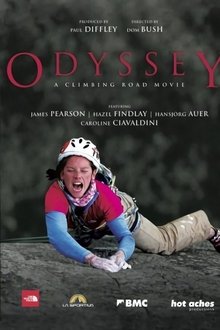
Odyssey (2012)
‘Odyssey’ is a road movie that celebrates the best of British trad climbing. From the bold Northumberland sandstone to the raging sea cliffs of Gogarth, four World-class climbers (James Pearson, Hazel Findlay, Hansjorg Auer and Caroline Ciavaldini) embark on a road-trip to attempt some of the most fierce and inspiring routes in the UK. Cinematic filmmaking, cutting edge traditional climbing and a 7.5 ton converted truck – the Odyssey begins!

Westminster Abbey (1945)
The history of Westminster Abbey and a tour of the monuments within it; accompanied by choral music and including footage of the coronation of King George VI in 1937.

Teen Exorcists (2013)
They are young, all-American girls who enjoy horse riding, karate and Sherlock Holmes. But there's more to Brynne, Tess and Savannah than wholesome pursuits - they're exorcists. The girls believe much of the world's population is possessed by evil spirits which are causing addiction, depression and suffering. In a fight against the devil's army, they have been touring America performing public exorcisms on their believers. Now they are taking the fight to a city they think of as one of the most spiritually corrupt in the world - London. But what will Brits make of these evangelical American exorcists?
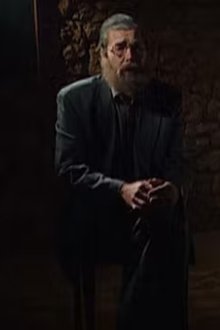
Carlos: Terrorist Without Borders (1997)
Documentary about Ilyich Ramírez Sánchez, aka "Carlos the Jackal", international terrorist.

Diana: In Her Own Words (2017)
Using home videos recorded by her voice coach, Diana takes us through the story of her life.

Tasmanian Devil: The Fast and Furious Life of Errol Flynn (2007)
The story of Tasmanian-born actor Errol Flynn whose short & flamboyant life, full of scandals, adventures, loves and excess was largely played out in front of the camera - either making movies or filling the newsreels and gossip magazines. Tragically he was dead from the effects of drugs and alcohol by the time he was only 50 & the myths live on. But there is another side of Flynn that is less well known - his ambitions to be a serious writer and newspaper correspondent, his documentary films and his interest in the Spanish Civil War and Castro's Cuba
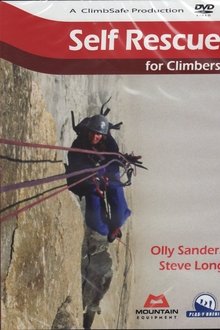
Self Rescue for Climbers (2007)
Self Rescue for Climbers DVD is a comprehensive guide to problem solving in climbing situations, it is aimed at the problems recreational climbers may encounter whether climbing on multi-pitch sea cliffs, mountain routes or road-side crags. Chapters include: good belay practice simple hoists escaping the system abseil safety prusiking and equipment testing also included is a staged Holyhead cliff rescue and a DMM factory visit - the DVD was filmed on location in Malham, Gogarth, Tremadog and the Llanberis Pass.
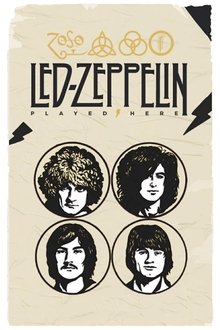
Led Zeppelin Played Here (2014)
1969. Man lands on the moon. Half a million strong at Woodstock....and Led Zeppelin perform in the gym of the Wheaton Youth Center in front of 50 confused teenagers. Or did they? Filmmaker Jeff Krulik chronicles an enduring Maryland legend, of the very night this concert was alleged to have taken place, January 20, 1969, during the first Presidential Inauguration of Richard Nixon. Led Zeppelin Played Here presents a mid-Atlantic version of what was happening nationwide as the rock concert industry took shape. Featuring interviews with rock writers, musicians, and fans, and several who claim they were witnessing history that night.

Swing con Son (2009)
Music documentary about Billo Frómeta by director Rafael Marziano Tinoco from Venezuela.

When We Were Kings (1996)
It's 1974. Muhammad Ali is 32 and thought by many to be past his prime. George Foreman is ten years younger and the heavyweight champion of the world. Promoter Don King wants to make a name for himself and offers both fighters five million dollars apiece to fight one another, and when they accept, King has only to come up with the money. He finds a willing backer in Mobutu Sese Suko, the dictator of Zaire, and the "Rumble in the Jungle" is set, including a musical festival featuring some of America's top black performers, like James Brown and B.B. King.

The Day Hitler Died (2015)
The story of Hitler’s final hours told by people who were there. This special features exclusive forgotten interviews, believed lost for 65 years, with members of Hitler’s inner circle who were trapped with him in his bunker as the Russians fought to take Berlin. These unique interviews from figures such as the leader of the Hitler Youth Artur Axmann and Hitler’s secretary Traudl Junge, have never before been seen outside Germany. Using rarely seen archive footage and dramatic reconstruction, this special tells the story of Adolf Hitler’s final days in his Berlin bunker.

Sarah Everard: The Search for Justice (2024)
An exploration of the Met’s investigation into Sarah’s murder, how this devastating crime unfolded and its impact. Told by those closely involved in the case from the outset, many of whom are speaking on camera for the first time, including the Senior Investigating Officer, the Prosecuting Barrister and Sarah’s local MP.

Almerinda, Uma Mulher de Trinta (1991)
Rescue of the life story of feminist activist from the 1930s, Almerinda Farias Gama, participant in the struggle for the right to vote for women in the 1934 Constitution, and activist of the Brazilian Federation for Female Progress, together with Bertha Lutz.

Heil Hitler! Confessions of a Hitler Youth (1991)
This short-form documentary focuses on the true story of Alfons Heck, who as an impressionable 10-year-old boy became a high-ranking member of the Hitler youth movement during World War II. The story is told in his own words. This film originally aired as part of the "America Undercover" series on HBO.
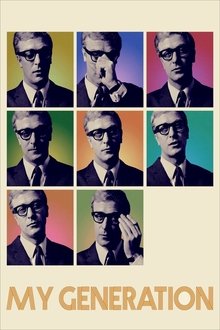
My Generation (2017)
The vivid and inspiring story of British film icon Michael Caine's personal journey through 1960s swinging London.
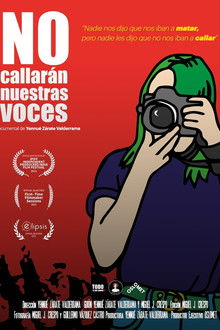
They Will Not Silence Our Voices (2020)
"Nobody told us that they would kill us, but neither did they tell them they would not silence us". Women journalists from several parts of Mexico who cover the beat of hard news, reveal the challenges they face when doing their work with various actors: their sources, law enforcement officers, drug trafficking and the state. Mexico is one of the most dangerous countries in which to practice journalism. Several reporters have been assassinated since 2000. Within this context, female journalists face a double challenge: firstly, to work in a country with a high level of anti-press, violence, and, secondly, the state and situation of their gender in a country riddled with femicide.

Tasha Diamant's Human Body Project (2010)
Gandhi said: 'Be the change you wish to see in the world.' In this experiential open forum shot at a fringe theater festival, Tasha Diamant, a mother, artist, and educator, models human vulnerability by appearing naked and unscripted. Diamant has bravely chosen to 'be' or embody the humanity we all share: physicality, fragility, mortality. The goal: authenticity, compassion, peace. Engaged audiences connect and participate.
